Sustainability Growth
Accredited Consulting Service for Mr. Dunn Accredited Senior Consultant (ASC)

The Appleton Greene Accredited Consultant Service (ACS) for Sustainability Growth is provided by Mr. Dunn and provides clients with four cost-effective and time-effective professional consultant solutions, enabling clients to engage professional support over a sustainable period of time, while being able to manage consultancy costs within a clearly defined monthly budget. All service contracts are for a fixed period of 12 months and are renewable annually by mutual agreement. Services can be upgraded at any time, subject to individual client requirements and consulting service availability. If you would like to place an order for the Appleton Greene Sustainability Growth service, please click on either the Bronze, Silver, Gold, or Platinum service boxes below in order to access the respective application forms. If you have any questions or would like further information about this service, please CLICK HERE. A detailed information guide for this service is provided below and you can access this guide by scrolling down and clicking on the tabs beneath the service order application forms.
Client Telephone Conference (CTC)
If you have any questions or if you would like to arrange a Client Telephone Conference (CTC) to discuss this particular Unique Consulting Service Proposition (UCSP) in more detail, please CLICK HERE.
Bronze Client Service
Monthly cost: USD $1,500.00
Time limit: 5 hours per month
Contract period: 12 months
SERVICE FEATURES
Bronze service includes:
01. Email support
02. Telephone support
03. Questions & answers
04. Professional advice
05. Communication management
To apply – CLICK HERE

Silver Client Service
Monthly cost: USD $3,000.00
Time limit: 10 hours per month
Contract period: 12 months
SERVICE FEATURES
Bronze service plus
01. Research analysis
02. Management analysis
03. Performance analysis
04. Business process analysis
05. Training analysis
To apply – CLICK HERE
Gold Client Service
Monthly cost: USD $4,500.00
Time limit: 15 hours per month
Contract period: 12 months
SERVICE FEATURES
Bronze/Silver service plus
01. Management interviews
02. Evaluation and assessment
03. Performance improvement
04. Business process improvement
05. Management training
To apply – CLICK HERE
Consultant Profile
Mr. Dunn is an approved Senior Consultant at Appleton Greene and he has experience in management, production and finance. He has achieved a Master’s in Business Administration (MBA) and a Bachelor’s of Science in Chemistry (B.S.). He has industry experience in the following sectors: Biotechnology, Mining, Manufacturing and Energy. He has had commercial experience within the following countries: United States of America; United Kingdom and Singapore, or more specifically within the following cities: Los Angeles, CA; San Fransico, CA, San Diego, CA, London, UK and Singapore. His personal achievements include: Directed Materials Sustainable Business Strategy; Developed and Led Sustainability Program; Developed and Launched a Protein Engineering Thought Leadership Campaign; Developed UAE Alternative Energy Strategy; Built Environmental Product Selection Capability. His service skills incorporate: Corporate Sustainability; Management Strategy; Marketing Strategy; Performance Improvement and Social Responsibility
To request further information about Mr. Dunn through Appleton Greene, please CLICK HERE
Executive Summary

Sustainability Growth
Incorporating sustainability into global business strategy is a proven driver of long-term value and prosperity. Evidence increasingly shows that sustainable practices are closely linked to financial success, supporting a strong business case for embedding sustainability at the core of global business operations.
Pain Points
Businesses face numerous sustainability pain points. Constant waves of Customer surveys and inquiries demand transparency, while a lack of subject matter expertise hampers effective sustainability initiatives. Navigating complex, multi-jurisdictional regulatory compliance, especially in Europe, adds significant strain. There’s growing demand for eco-friendly products and certifications, alongside increasing carbon taxes and the need for comprehensive reporting and reductions. Rising landfill disposal costs pressure operations, and companies must safeguard their reputations amid employee demands for sustainability commitments. ESG reporting requirements from investors further amplify the pressure for accountability and demonstrable sustainable practices, driving businesses to balance economic performance with environmental responsibility.
![]()
Industry Leadership – Case Studies
SAP’S Chief Sustainability Officer, Sophie Mendelsohn, is quoted in a recent TechCrunch interview saying, “Fundamentally investors have said to boards of directors, you have physical and transition risks coming at you — physical to your employees and your supply chain — and that will transition to your books,”
Helen Mets, President & CEO of Ahlstrom (EUR 3 billion global leader in fiber-based specialty materials) – whom I had the pleasure of working with at Avery Dennison – summed up the business value of Sustainability very well at a recent conference:
“I was honored to talk about sustainable innovation that accelerates growth at the NoBullsh*t Sustainability event in Helsinki this week. I cannot emphasize enough the urgency to act now, even if embarking on the sustainability journey seems like a monumental task:
• I’m concerned that efforts toward sustainability are slowing down. Companies – big and small – need to act. If not now, when?
• Yes, there is complexity in any sustainability journey. Identify the external challenges that you believe your company has the capabilities to solve. And then just start. Once you take that first step, momentum builds, and the path forward becomes clearer.
• Create the dream, create the purpose, and provide clarity. People will engage.
• Co-create with customers and know that it is often not perfect first time. It is all about “mind share” not “market share”.
• A dream does not become reality without a roadmap”.
Ahlstrom’s entire business model is built around sustainable business principles: “We develop fiber-based specialty materials for a sustainable world. We create value by developing sustainable fiber-based solutions in close collaboration with our customers utilizing our know-how on combining raw materials and our advanced technology.”
Financial Performance and Resilience
Companies that prioritize sustainability often see improved financial performance and resilience. A study by Harvard Business Review found that organizations with robust sustainability initiatives outperformed their counterparts in terms of stock market and accounting performance over the long term. These companies tend to be more efficient, reduce waste, and mitigate risks related to environmental regulations and resource scarcity, resulting in cost savings and enhanced profitability.
Trust and Loyalty Among Stakeholders
In addition, sustainability fosters trust and loyalty among stakeholders, from customers, employees to investors. Research by McKinsey shows that strong environmental, social, and governance (ESG) performance enhances a company’s brand reputation and attracts investment. Investors are increasingly recognizing that companies with sustainable practices are better positioned for long-term success, as they are more resilient to environmental, social, and economic changes.
![]() European Union Leading the Way
European Union Leading the Way
The growing demand for Sustainable business practice is a global phenomenon, however, the European Union is clearly leading the way. The European Union’s demand for sustainable business practices is intensifying, driven by stringent regulations and a highly eco-conscious consumer base. The EU’s Green Deal and Corporate Sustainability Reporting Directive (CSRD) are compelling companies to adopt transparent, sustainable operations and disclose their environmental impact. Consumers in the EU increasingly favor brands that prioritize sustainability, pushing businesses to innovate in areas like carbon reduction, circular economy, and ethical sourcing. Companies that align with these demands not only enhance their market competitiveness but also contribute to the EU’s broader goals of achieving carbon neutrality and fostering a sustainable economy by 2050.
Attracting and Retaining Younger Employees
Sustainable business practices are increasingly vital for attracting and retaining younger employees, particularly Millennials, Gen X, and Gen Z. These generations prioritize working for companies that align with their values, especially regarding environmental and social responsibility. By adopting sustainability, businesses appeal to these workers, enhancing recruitment efforts and fostering a deeper sense of loyalty. Employees are more likely to stay with companies that contribute positively to the planet, leading to lower turnover rates. Moreover, a commitment to sustainability can boost morale, productivity, and brand advocacy, as younger employees seek meaningful work that reflects their commitment to a better future. A 2021 study by Deloitte found that 49% of Millennials and 44% of Gen Zs said they have made career decisions based on their personal ethics, including sustainability. Additionally, Cone Communications reported that 75% of Millennials are willing to take a pay cut to work for a company with sustainable practices. Furthermore, research from WeSpire revealed that 83% of Millennials would be more loyal to a company that helps them contribute to social and environmental causes, highlighting the critical role sustainability plays in attracting and retaining younger employees.
Conclusion
By aligning sustainability with core business strategies, companies not only contribute to a better future but also secure long-term prosperity through innovation, efficiency, and stakeholder trust.

Service Methodology
The methodology employed in this practice aligns closely with the scientific method, focusing on data-driven analysis and clear client objectives. The process starts with qualitative data collection through stakeholder engagement, followed by quantitative data gathering and analysis via a materiality assessment. The resulting Sustainability Strategy is crafted based on stakeholder priorities and the environmental impact opportunities identified during the materiality assessment. Collaboration with key client decision-makers is crucial in this phase to ensure the strategy is successfully adopted within the organization.
Once the strategy is developed, an internal and external communication plan is created to convey key sustainability messages to all stakeholders. The final step involves implementing a Sustainability Program derived from the adopted strategy.
Stakeholder Engagement
Stakeholder engagement is essential for capturing the perspectives of all key stakeholders—executives, employees, customers, investors, community representatives, and key suppliers—on environmental and social impact priorities. This phase typically includes interviews, surveys, and a review of published information such as websites and sustainability reports. The outcome is a summary report that highlights common sustainability priorities, such as GHG reduction, waste management, and eco-friendly products.
Materiality Assessment
The materiality assessment involves collecting baseline data on current environmental impacts from sources like production statistics, environmental reports, utility bills, and supply chain records. This analysis aims to understand the company’s environmental footprint, focusing on areas such as GHG emissions, waste, and water use throughout the value chain. This preliminary assessment doesn’t require a full formal Life Cycle Assessment, it offers a high-level comparison of relative impacts, producing a graphic representation that integrates with the stakeholder assessment to highlight 2-3 key focus areas.
 Strategy Development
Strategy Development
The strategy is developed around the 2-3 focus areas identified through the integration of stakeholder engagement and materiality assessment. Common focus areas include GHG reduction and waste management. It is advisable to concentrate on no more than three areas. Strategy development is a collaborative process between the consultant and the client, resulting in a co-created Sustainability Policy, long-term sustainability goals, and near-term measurable targets.
Sustainability Communication
Effective communication is vital for the success of a sustainability strategy. The communication plan is tailored to the organization’s needs, ensuring that the right information reaches the appropriate stakeholders at the right time. This often includes updating website content, creating investor or customer collateral, and developing sustainability presentations for sales and marketing teams.
Program Implementation
The successful implementation of the strategy relies on a well-supported Sustainability Program, staffed by dedicated resources with a clear mandate. This may involve detailed implementation plans or hiring external vendors, such as Life Cycle Assessment practitioners, waste management experts, or clean energy specialists. Additionally, it may require updating existing business and financial plans, as well as drafting capital project plans.

Service Options
Companies can elect whether they just require Appleton Greene for advice and support with the Bronze Client Service, for research and performance analysis with the Silver Client Service, for facilitating departmental workshops with the Gold Client Service, or for complete process planning, development, implementation, management and review, with the Platinum Client Service. Ultimately, there is a service to suit every situation and every budget and clients can elect to either upgrade or downgrade from one service to another as and when required, providing complete flexibility in order to ensure that the right level of support is available over a sustainable period of time, enabling the organization to compensate for any prescriptive or emergent changes relating to: Customer Service; E-business; Finance; Globalization; Human Resources; Information Technology; Legal; Management; Marketing; or Production.
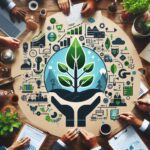
Service Mission
The successful development and implementation of a sustainability business strategy provides a crucial compass or roadmap to guide organizational performance over a 3-to-5-year period. This strategy is not just a static document; it is a high-level, living plan that requires regular revisiting and adjustments as circumstances evolve. Serving as a foundational framework, it guides the creation of more detailed business and implementation plans, as well as the establishment of executive accountabilities.
A sustainability strategy can be either a modified version of an existing business strategy or an entirely new document tailored to the organization’s specific goals and challenges. Regardless of its origin, three critical factors determine its success.
Firstly, strong executive buy-in is essential. The commitment must start at the top and permeate through all levels of the organization. Leadership must not only endorse the strategy but also actively participate in its implementation, setting the tone for the entire organization.
Secondly, effective communication is key. The strategy needs to be clearly communicated to all stakeholders, including employees, customers, community members, and investors. Each group must understand the strategy’s objectives, their role in its success, and how it aligns with broader organizational goals.
Thirdly, the strategy must include measurable sustainability metrics that align with leadership values and meet stakeholder expectations. These metrics provide a clear way to track progress, hold individuals accountable, and make necessary adjustments over time. Metrics might include targets for reducing greenhouse gas emissions, improving energy efficiency, or enhancing social impact.
A well-crafted sustainability strategy is a dynamic tool that guides an organization toward long-term success. It ensures that sustainability is integrated into every aspect of the business, aligning operational practices with environmental and social responsibilities while meeting the evolving expectations of all stakeholders.
Service Objectives
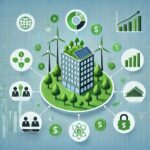
The following list represents the Key Service Objectives (KSO) for the Appleton Greene Sustainability Growth service.
- Sustainability Strategy
To successfully implement a corporate sustainability program, strategic planning is essential. This involves setting clear goals aligned with the company’s mission and long-term vision. Engaging stakeholders, including customers, employees, investors, and suppliers, ensures that the program reflects the interests and expectations of all parties involved.
Developing a corporate sustainability strategy based on stakeholder input and robust baseline environmental and social impact data is essential for creating a program that is both effective and aligned with the company’s values and objectives. Stakeholder input—gathered from customers, employees, investors, suppliers, and community members—ensures that the strategy addresses the most relevant concerns and expectations. This engagement not only builds trust but also enhances the program’s credibility and relevance, making it more likely to succeed.
A sound baseline of environmental and social impact data is the foundation for an informed strategy. This data provides a clear picture of the company’s current impact, highlighting areas for improvement and opportunities for innovation. By understanding its starting point, a company can set realistic, achievable goals that are directly tied to its sustainability performance.
The strategy itself should be a multi-year plan with clear, measurable goals and key performance indicators (KPIs). These goals should be specific, achievable, and time-bound, covering areas such as carbon emissions reduction, waste management, water use, and social equity. KPIs enable the company to track progress over time, make adjustments as needed, and demonstrate accountability to stakeholders.
The value of this approach lies in its ability to drive continuous improvement and long-term success. A well-developed sustainability strategy not only minimizes risks and operational costs but also enhances brand reputation, strengthens stakeholder relationships, and positions the company as a leader in sustainability. By aligning the strategy with stakeholder needs and using solid data to inform decision-making, a company can create a sustainability program that delivers real, measurable impact.
Leadership commitment is critical to the success of a corporate sustainability program. When executives and senior management prioritize sustainability, it sets the tone for the entire organization, ensuring that sustainability goals are integrated into the company’s culture and operations. Strong leadership fosters accountability, drives innovation, and inspires employees to actively participate in achieving sustainability targets, ultimately ensuring the program’s long-term success and impact.
Policy development is another critical step, providing a framework for the program and setting the standards for environmental, social, and governance (ESG) practices. Setting specific, measurable targets and tracking progress against these benchmarks is crucial for maintaining momentum and demonstrating accountability. Regularly communicating the program’s successes and challenges through strategic messaging reinforces the company’s commitment and engages stakeholders.
Employee training is vital to ensure that all staff understand and can contribute to sustainability goals. Finally, conducting life cycle assessments of products and processes helps identify areas for improvement, ensuring that sustainability is embedded throughout the business.
By integrating these elements, companies can build a robust sustainability program that drives business value and ensures long-term success.
- Sustainability Messaging
Developing a corporate sustainability communication plan is crucial for effectively conveying a company’s sustainability efforts to diverse stakeholders, including customers, investors, employees, NGOs, and suppliers. Clear and consistent messaging not only builds trust but also enhances the company’s reputation, fosters stronger relationships, and drives engagement with sustainability initiatives.
A successful communication plan begins with identifying key messages that resonate with each stakeholder group. For customers, the focus might be on how the company’s sustainability practices contribute to product quality and social responsibility, appealing to their values and fostering brand loyalty. Investors, on the other hand, are likely to be interested in the long-term financial benefits of sustainability, such as risk mitigation, cost savings, and enhanced market positioning. For employees, the messaging should emphasize the company’s commitment to a responsible workplace, highlighting opportunities for them to contribute to sustainability goals. NGOs and suppliers will value transparency and collaboration, with messages focusing on ethical sourcing, environmental stewardship, and partnership opportunities.
The communication plan should leverage multiple channels to reach these audiences effectively. A dedicated section on the company’s website can serve as a central hub for sustainability information, showcasing reports, case studies, and news updates. Collateral materials like brochures and sustainability reports can be distributed at events or through direct mail, offering detailed insights into the company’s initiatives. Presentation slides and sustainability information decks can be tailored for investor meetings, conferences, and internal training sessions, providing a concise yet impactful overview of the company’s sustainability performance and goals.
Consistency across all channels is essential. The tone and content should align with the company’s overall brand voice, reinforcing the message that sustainability is integral to its business strategy. Regular updates and transparent reporting help maintain credibility, keeping stakeholders informed about progress and challenges.
By developing a well-rounded sustainability communication plan, companies can effectively engage stakeholders, enhance their reputation, and reinforce their commitment to sustainable practices, ultimately contributing to long-term business success.
- Sustainable Procurement
Ensuring a sustainable supply chain is increasingly vital for companies aiming to minimize their environmental impact, improve social responsibility, and strengthen their overall business resilience. A sustainable supply chain not only enhances a company’s reputation but also reduces risks, improves efficiency, and aligns with growing consumer and regulatory demands for transparency and ethical practices.
Supplier engagement is the first critical step. By actively engaging suppliers, companies can communicate their sustainability expectations and collaborate on shared goals. This engagement often begins with clear communication about the company’s sustainability priorities and the importance of these practices to the overall business strategy. Regular dialogue fosters stronger relationships and encourages suppliers to align their practices with these expectations.
Surveys are a useful tool for assessing supplier sustainability performance. These surveys help gather data on a supplier’s environmental practices, labor conditions, and ethical standards. The insights gained can be used to identify areas for improvement, prioritize suppliers for deeper engagement, and ensure that sustainability goals are being met across the supply chain.
A Supplier Code of Conduct, a common corporate practice these days, is essential in setting clear standards for ethical and sustainable practices. This code should cover critical areas such as labor rights, environmental impact, and anti-corruption measures. Requiring suppliers to comply with this code ensures that all partners operate under the same high standards, fostering a consistent approach to sustainability.
Sustainability partnerships are also valuable. By collaborating with suppliers and other stakeholders on joint sustainability initiatives, companies can drive innovation and create shared value. These partnerships might involve co-developing sustainable products, improving resource efficiency, or investing in renewable energy projects.
Sustainable data sharing is crucial for transparency and accountability. Companies should encourage suppliers to share data on their sustainability practices and performance. This data enables companies to track progress, identify risks, and make informed decisions about their supply chain management.
By adopting these approaches, companies can create a more resilient and sustainable supply chain, which contributes to long-term business success while also positively impacting the environment and society.
- Sustainable Operations
Developing sustainable operations is essential for businesses aiming to reduce their environmental footprint, enhance operational efficiency, and build resilience in a rapidly changing global landscape. Focusing on key areas such as energy consumption, greenhouse gas emissions, production efficiency, waste management, water management, air pollution control, and hazardous material risk management can deliver significant value both environmentally and economically.
Reducing energy consumption and greenhouse gas emissions is a cornerstone of sustainable operations. By investing in energy-efficient technologies, optimizing processes, and incorporating renewable energy sources, companies can significantly lower their carbon footprint and reduce energy costs. This not only improves profitability but also aligns with global efforts to combat climate change.
Production efficiency is another critical area. Streamlining operations through lean manufacturing principles, automation, and continuous improvement initiatives can minimize resource use, reduce waste, and improve output quality. This drives cost savings and increases competitiveness while reducing environmental impact.
Effective waste and water management are vital for sustainable operations. Implementing recycling programs, reducing water use through efficient practices, and treating wastewater can mitigate environmental harm and lower operational costs. Managing air pollution through advanced filtration systems and reducing hazardous material use also protects both the environment and employee health.
Employee collaboration is key to driving sustainability in operations. Engaging production employees in identifying and implementing sustainable practices fosters a culture of continuous improvement and innovation. Employee-led initiatives often uncover practical solutions that enhance sustainability while improving workplace efficiency.
Innovation and sound capital investment are crucial for developing sustainable operations. Investing in green technologies, such as energy-efficient equipment or waste reduction systems, pays off in the long run through operational savings and reduced environmental impact. Engaging external expert resources, such as environmental consultants and sustainability specialists, can also provide valuable insights and best practices for optimizing operations.
In conclusion, sustainable operations are achieved through a combination of employee collaboration, innovation, strategic investments, and expert guidance. By focusing on key areas like energy, waste, and pollution management, companies can create operations that are both environmentally responsible and economically viable, contributing to long-term success.
- Sustainable Culture
A sustainable business culture integrates environmental and social responsibility into every aspect of a company’s operations, driving long-term success and positive impact. This culture prioritizes ethical practices, resource efficiency, and innovation aimed at reducing environmental footprints and fostering social equity. Employees are encouraged to adopt sustainable habits, contribute to eco-friendly initiatives, and engage in continuous learning about sustainability. Leadership plays a crucial role by setting clear sustainability goals, ensuring transparency, and aligning corporate values with environmental stewardship. A strong sustainable culture not only enhances brand reputation but also attracts talent, improves employee satisfaction, and builds customer loyalty.
A sustainable innovation R&D culture focuses on developing products, processes, and technologies that minimize environmental impact while maximizing efficiency and social value. It encourages creativity and collaboration across teams to find solutions that address global challenges like climate change, resource scarcity, and pollution. This culture prioritizes long-term thinking, integrating sustainability goals into the core of research and development efforts. By fostering an environment where sustainability is a key criterion for innovation, companies can create competitive advantages, reduce costs, and open new market opportunities. Moreover, it attracts top talent, as employees increasingly seek to work on projects that make a meaningful difference.
Achievements

Rio Tinto
Led impactful sustainability initiatives focused on efficiency and market expansion. Established a continuous improvement cost management system, delivering 3% annual cost savings in real terms. Conducted comprehensive reviews across all business functions, achieving $60M in annual savings. Spearheaded market expansion by introducing new sustainable applications, including eco-friendly wood preservation products and borate autocausticizing pulp processing technology, across Asia, Europe, and South America. These efforts not only enhanced operational efficiency but also positioned the organization as a leader in sustainable innovation and global market growth.
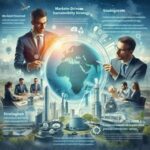
Avery Dennison
Directed the creation and implementation of sustainable business strategies for the Pressure Sensitive and Specialty Converted Materials divisions. Developed a market-driven sustainability strategy, incorporating insights from key stakeholders to align with business goals. Strengthened organizational capabilities in environmentally conscious product selection and R&D, driving innovation and sustainability in product development. These initiatives not only enhanced the company’s market positioning but also reinforced its commitment to sustainability, ensuring long-term growth and alignment with evolving industry standards.
Led the Ecological Product Management team, driving revenue growth through sustainable product offerings. Directed product development activities to address unmet customer needs, ensuring the creation of innovative and eco-friendly solutions. Served as the division’s spokesperson for Sustainability, effectively communicating both internally and externally about sustainable product strategies and solutions. These efforts not only accelerated revenue growth but also positioned the company as a leader in sustainability, reinforcing its commitment to providing environmentally responsible products that meet market demands.
Codexis
Successfully repositioned and rebranded a company specializing in protein engineering for biotherapeutic manufacturing, emphasizing its cleaner, more sustainable chemical synthesis process. This strategic overhaul involved redefining the brand’s target markets to align with emerging industry demands for sustainable biotech solutions. Engaged key industry executives to build strong relationships and foster interest in the company’s innovative offerings. Developed a comprehensive marketing strategy that significantly boosted the company’s visibility and credibility, supporting multiple fundraising efforts that culminated in a $50 million raise. This rebranding and market repositioning resulted in substantial business growth, leading to an 11x increase in market capitalization.

Lamtec
In this consulting engagement, a comprehensive corporate sustainability program was developed for a successful US-based construction material component supplier. The initiative included creating a Corporate Social Responsibility (CSR) and Environmental Management System (EMS) program, focusing on long-term goals such as greenhouse gas (GHG) reduction, packaging waste minimization, and product stewardship. Key actions included setting 2024 reduction targets, expanding programs to a sister company, and establishing tracking and reporting mechanisms.
The program’s deliverables included a methodology for calculating key performance indicators (KPIs), EMS system framework, and the creation of a CSR team with defined goals. Additionally, sustainability messaging and communication tools were developed, including content for the company website and training for the Customer Service team to address sustainability inquiries.
Supplier engagement was a critical component, involving a review of supplier survey responses, identification of data gaps, and the establishment of a supplier sustainability database. The engagement also addressed carbon footprint management, providing turnkey solutions for carbon assessments/ verification and supporting the Scope 3 data collection process.
Overall, the engagement ensured the company’s sustainability program was robust, with ongoing support for continuous improvement and alignment with industry standards.

Euro Mechanical
In this consulting engagement, a UAE-based traditional oil and gas company sought to expand into the rapidly growing alternative energy sector. The project involved in-depth research on global alternative energy trends, focusing on hydrogen, wind, and solar technologies. Key activities included evaluating cutting-edge generation technologies and identifying strategic opportunities for market entry.
The engagement facilitated high-level meetings with hydrogen technology experts based in California and Japan, providing the client with valuable insights into advanced hydrogen solutions. Additionally, collaboration was initiated with MASDAR, a leading UAE alternative energy company, to explore potential partnerships and leverage local expertise.
Senior management and board-level briefings were conducted to present findings, outline strategic opportunities, and recommend actionable steps for the company’s successful transition into the alternative energy market. This engagement positioned the company to capitalize on emerging opportunities in renewable energy while aligning with global sustainability trends.
More detailed achievements, references and testimonials are confidentially available to clients upon request.
Industries
This service is primarily available to the following industry sectors:

Biotechnology
The global biotechnology industry is experiencing rapid growth, driven by advancements in research and development (R&D), contract development and manufacturing organizations (CDMOs), and contract research organizations (CROs). In 2023, the global biotechnology market was valued at around $752 billion and is projected to exceed $1.3 trillion by 2030, with a compound annual growth rate (CAGR) of 8.7%. This growth is largely fueled by increasing demand for innovative therapies, personalized medicine, and sustainable biotechnological solutions across various sectors.
Sustainability is becoming a critical focus within the biotechnology industry, particularly in R&D and contract services. Companies are increasingly integrating sustainable practices into their operations to minimize environmental impact, reduce costs, and meet regulatory demands. In R&D, the emphasis is on developing eco-friendly technologies and processes, such as green chemistry, which aims to design chemical products and processes that reduce or eliminate the use and generation of hazardous substances. This approach not only aligns with environmental goals but also improves efficiency and cost-effectiveness.
Leading global biotechnology companies like Amgen, Gilead Sciences, and Biogen, alongside prominent CDMOs such as Lonza and WuXi AppTec, and CROs like IQVIA and Labcorp, are increasingly adopting sustainable practices. Lonza, for instance, has committed to reducing CO2 emissions by 50% by 2030.
The CDMO and CRO sectors are integral to the global biotechnology industry, currently growing at a CAGR of over 7%. This growth is driven by pharmaceutical companies outsourcing R&D, manufacturing, and sales functions to reduce costs, enhance efficiency, and accelerate time-to-market for new therapies. As demand for specialized expertise and scalable solutions rises, these contract services are expected to play an increasingly crucial role in driving innovation and economic growth in the biotech and pharmaceutical industries. The fragmented nature of the industry—especially among small and medium players—continues to present consolidation opportunities
CDMOs and CROs are also adopting sustainable practices to stay competitive and meet the growing demand for environmentally responsible solutions. CDMOs, for example, are implementing energy-efficient manufacturing processes, reducing waste through improved production methods, and adopting circular economy principles to reuse materials and resources. CROs are focusing on reducing the environmental impact of clinical trials by optimizing trial designs, minimizing waste, and using digital tools to streamline processes and reduce resource consumption.
Looking ahead, the trend toward sustainability in biotechnology is expected to intensify. Sustainable innovation is becoming a differentiator, shaping future partnerships and investments. Companies that prioritize sustainable practices will likely gain a competitive edge, attract more investment, and meet the increasing regulatory requirements related to environmental sustainability. The industry is also expected to see more collaborations aimed at advancing sustainability, with a focus on developing innovative solutions that address global challenges, such as climate change, resource scarcity, and public health. As sustainability becomes more embedded in the biotechnology sector, it will play a pivotal role in shaping the future of the industry.

Mining
The global mining industry is undergoing significant transformation, driven by the growing demand for minerals, metals, and the critical role of sustainability in operations. As the world transitions to greener technologies and decarbonization, mining companies are under pressure to meet both rising material demands and stricter environmental standards.
In 2023, the global mining market was valued at over $2 trillion, with major companies like BHP, Rio Tinto, Glencore, and Vale leading the sector. These companies are heavily involved in the extraction of key resources such as iron ore, copper, aluminum, and nickel—materials essential for renewable energy technologies like wind turbines, solar panels, and electric vehicle batteries. Copper, in particular, is seeing heightened demand as it is a critical conductor for electrical grids and clean energy technologies, and demand is expected to double by 2050 due to the energy transition.
Sustainability has become a key business driver for the mining industry, with companies increasingly focusing on reducing their environmental impact and adopting greener technologies. The industry’s reliance on fossil fuels for energy and its contributions to land degradation and water pollution have drawn attention from regulators, investors, and consumers alike. In response, leading mining firms are making substantial investments in decarbonization and cleaner production methods. For instance, BHP and Rio Tinto are committing to net-zero emissions by 2050 and are exploring hydrogen and electrification technologies to power their operations. Anglo American is developing a hydrogen-powered truck fleet as part of its efforts to decarbonize mining processes.
Technological innovation is playing a crucial role in shaping the future of mining and refining. Automation, artificial intelligence (AI), and the Internet of Things (IoT) are being integrated into mining operations to increase efficiency, reduce energy consumption, and minimize waste. Drones and autonomous vehicles are improving exploration and safety, while AI is being used to optimize resource extraction and reduce operational costs.
The circular economy is another key trend. Companies are focusing on recycling and reusing materials to decrease reliance on virgin mining. For example, the refining industry is increasingly using scrap metals and recovering materials from electronic waste, creating a more sustainable supply chain.
Looking ahead, the mining industry will be defined by its ability to balance growing demand with sustainable practices. As the world shifts toward green energy, companies that lead in environmental stewardship, technological innovation, and transparency will be best positioned to capitalize on emerging opportunities while addressing global sustainability challenges.
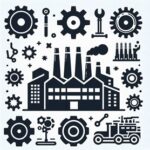
Manufacturing
The global manufacturing industry is undergoing a significant transformation as companies increasingly prioritize sustainability and adopt emerging technological trends. As of 2023, the global manufacturing market was valued at over $16 trillion, and it is expected to continue growing as demand for consumer goods, industrial products, and advanced technologies rises. This growth is propelled by both large multinational corporations and a vast ecosystem of small to medium-sized privately held niche manufacturing companies, particularly in the U.S. and Europe.
Leading companies in the global manufacturing sector, such as Toyota, General Electric, and Siemens, are focusing heavily on sustainable practices to reduce their carbon footprints, conserve resources, and improve operational efficiency. Sustainability has become a key business driver as companies are pressured by governments, consumers, and investors to meet stringent environmental standards and achieve net-zero emissions. In the U.S. and Europe, thousands of smaller manufacturers, many of which operate in specialized markets such as precision engineering, medical devices, or renewable energy components, are also adopting sustainable practices. These businesses are increasingly utilizing recycled materials, reducing waste, and investing in energy-efficient technologies.
One of the key trends shaping the future of manufacturing is the rise of Industry 4.0, which integrates advanced digital technologies into the production process. Automation, robotics, artificial intelligence (AI), and the Internet of Things (IoT) are transforming manufacturing operations, enabling greater efficiency, precision, and sustainability. For example, AI-powered analytics are helping companies optimize resource use, minimize energy consumption, and reduce waste, while IoT-enabled sensors monitor equipment performance to prevent breakdowns and improve energy efficiency. These innovations are particularly valuable to small and medium-sized manufacturers, enabling them to compete more effectively with larger corporations by enhancing productivity and reducing costs.
In addition to digitalization, the push for sustainable manufacturing practices is driving the adoption of green technologies, such as renewable energy sources and circular economy principles. Many manufacturers are investing in solar and wind power to reduce their reliance on fossil fuels, while others are designing products with recyclability in mind, reducing the overall environmental impact of production. This shift toward sustainability is expected to accelerate, particularly in Europe, where stricter regulations like the European Green Deal are prompting manufacturers to adopt greener practices.
Looking ahead, the global manufacturing industry will continue to evolve, with sustainability and technological innovation driving future growth. Small and medium-sized manufacturers in the U.S. and Europe are poised to play a critical role, leveraging their niche expertise and flexibility to adopt cutting-edge technologies and meet rising sustainability expectations. These companies, alongside industry giants, will shape the future of manufacturing in an increasingly green and digital economy.
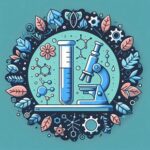
Chemicals
The specialty chemicals industry is undergoing significant transformation as sustainability becomes a key business driver, shaping both current practices and future opportunities. Specialty chemicals, which are tailored for specific industries such as agriculture, pharmaceuticals, and consumer goods, accounted for a global market value of over $700 billion in 2023. The industry is expected to grow at a compound annual growth rate (CAGR) of 5-6% through 2030, driven by increasing demand for eco-friendly products, regulatory pressures, and advancements in technology.
Leading companies in the sector, such as BASF, Dow Chemical, Evonik, and Clariant, are at the forefront of this shift, actively integrating sustainable practices into their operations. These firms are investing in green chemistry, renewable raw materials, and processes that reduce energy consumption and waste. One of the most significant trends shaping the specialty chemicals industry is the development of bioprocess-derived substances. These bio-based chemicals are derived from renewable resources like plant-based feedstocks, replacing traditional petrochemical-based substances. This shift is driven by consumer demand for more environmentally friendly products and the desire to reduce reliance on fossil fuels. Companies are increasingly using biotechnological methods, such as fermentation, to produce specialty chemicals in a more sustainable manner.
Life cycle assessment (LCA) is also gaining prominence as companies seek to measure and minimize the environmental impact of their products from raw material extraction to disposal. LCAs are helping manufacturers understand their carbon footprints and identify opportunities to reduce emissions, waste, and energy use throughout the product life cycle. By focusing on the entire life cycle, companies can design products that are more sustainable and comply with evolving regulatory standards, especially in regions like Europe where regulations such as REACH (Registration, Evaluation, Authorisation, and Restriction of Chemicals) are becoming more stringent.
The industry is also facing increased regulation around hazardous materials. Governments across the world are tightening rules around the use and disposal of chemicals that pose risks to human health and the environment. In response, companies are developing non-toxic alternatives and finding ways to reduce hazardous waste in production processes. For example, “green solvents” and “water-based formulations” are replacing traditional hazardous solvents, contributing to safer and more sustainable manufacturing processes.
Looking ahead, sustainability will continue to be the dominant force shaping the specialty chemicals industry. Companies that prioritize eco-friendly innovations, reduce their carbon footprints, and comply with stricter hazardous material regulations will not only enhance their competitiveness but also contribute to a more sustainable global economy. As bioprocessing technologies advance and regulatory frameworks evolve, the industry is poised for continued growth driven by both innovation and environmental responsibility.

Energy
The alternative and renewable energy industry is experiencing unprecedented growth as global efforts to combat climate change intensify, with a strong focus on reducing carbon footprints and achieving environmental sustainability. The industry, which includes wind, solar, hydroelectric, geothermal, and bioenergy, reached a global market size of approximately $1.1 trillion in 2022 and is expected to grow at a compound annual growth rate (CAGR) of around 8.5% through 2030. The shift toward clean energy is driven by increasing regulatory pressure, consumer demand, and advances in technology that are making renewable energy more cost-effective and scalable.
Leading companies such as NextEra Energy, Iberdrola, Siemens Gamesa, and First Solar are playing pivotal roles in the renewable energy landscape. These companies are investing heavily in wind and solar power, which have become the fastest-growing sources of energy worldwide. Wind and solar alone accounted for more than 70% of new electricity generation capacity added globally in 2022, with solar prices dropping by 85% in the last decade and wind power costs falling by 55%, making these technologies highly competitive against fossil fuels.
A key focus in the renewable energy sector is reducing carbon footprints. As nations commit to net-zero emissions by 2050, the transition to clean energy has become critical. Innovations like floating wind farms, which utilize offshore wind energy in deeper waters, and perovskite solar cells, which promise higher efficiency and lower costs than traditional silicon-based cells, are reshaping the landscape. Additionally, energy storage technologies are advancing rapidly, with companies like Tesla and LG Chem leading the way in developing large-scale battery solutions that can store renewable energy for use when generation is low, such as during cloudy or windless periods. These innovations help overcome the intermittent nature of renewable energy sources.
Hydrogen is also emerging as a major player in the renewable energy sector. Green hydrogen, produced using renewable energy to split water molecules, offers potential as a clean fuel for industries that are difficult to decarbonize, such as steel production and heavy transportation. Leading companies like Siemens Energy and Shell are making significant investments in hydrogen infrastructure and technology, further diversifying the clean energy portfolio.
Looking ahead, the long-term transformation of energy generation and distribution will focus on decentralization and smart grids. Distributed energy resources (DERs), such as rooftop solar panels and home battery systems, are becoming more common, allowing consumers to generate, store, and even sell energy back to the grid. Smart grids are expected to revolutionize energy distribution by enabling better integration of renewable sources, enhancing energy efficiency, and providing real-time data to optimize supply and demand.
Overall, the future outlook for the renewable energy industry is promising. As technological innovation continues to drive down costs and improve efficiency, renewable energy will play a central role in the global transition toward a sustainable, low-carbon economy.
Locations
This service is primarily available within the following locations:

Los Angeles
Los Angeles’ business outlook is bright, driven by its diverse economy, strong manufacturing base, growing biotechnology sector, and increasing focus on sustainability. The city’s proximity to key transportation hubs and its position as the second-largest metropolitan economy in the U.S.- generating a trillion dollars in GOD annually – make it a prime location for industries like manufacturing, chemicals, and biotechnology, all of which are evolving to meet sustainability demands.
In manufacturing, Los Angeles is a key player, with the industry contributing approximately $66 billion to the local economy and supporting over 350,000 jobs representing just under 10% of the regions total employment. Key manufacturing Industries include Aerospace and Defense; Food & Beverage; Apparel & Textiles; and Electronics & Technology. Companies like SpaceX, Boeing, and Tesla have substantial operations in the area, leveraging the city’s access to skilled labor and innovative technologies. However, small and privately held companies dominate the sector, accounting for over 90% of manufacturing firms in the area. With the push toward sustainable manufacturing, businesses are increasingly adopting cleaner production methods and energy-efficient technologies. The state’s ambitious carbon-neutrality goals are also influencing manufacturing strategies, with companies investing in renewable energy and greener supply chains.
The biotechnology sector in Los Angeles is growing rapidly. As home to leading academic and research institutions like the University of Southern California (USC) and UCLA, the region has become a hub for life sciences innovation. The biotech sector has seen significant venture capital investments, reaching nearly $6.7 billion in 2022 across Southern California, with much of that focused on Los Angeles. Companies like Kite Pharma (a leader in cancer immunotherapy) and Amgen (headquartered nearby in Thousand Oaks) are major players, advancing therapies in oncology, gene therapy, and regenerative medicine. The city’s commitment to innovation, combined with its world-class talent pool, positions it as a rising biotech hub.
In the chemicals industry, Los Angeles has a strong foundation with companies like Chevron and PPG Industries, but the future lies in sustainable chemical processes. The city is increasingly investing in green chemistry and circular economy practices, aiming to reduce waste, pollution, and energy consumption. The chemicals sector in Los Angeles is expected to evolve toward more sustainable operations, driven by both state regulations and consumer demand for eco-friendly products.
Sustainability is central to Los Angeles’ future economic growth. The city is making significant strides toward renewable energy, aiming to reach 100% renewable energy by 2045, with sectors like manufacturing and chemicals aligning with these goals. Sustainable transportation is also a key focus, with companies like BYD and Proterra leading in electric vehicle production. Los Angeles is also home to the largest green bond market in the U.S., channeling investments into clean energy, sustainable infrastructure, and climate-resilient projects.
Overall, Los Angeles’ business outlook is driven by innovation in biotechnology, sustainable manufacturing, and chemical processes, with sustainability as a core theme across sectors. The city is well-positioned for future growth, leveraging its strengths in technology, research, and green innovation to stay competitive in the global marketplace.

San Francisco
San Francisco and the surrounding Bay Area, including Silicon Valley and South San Francisco, are at the forefront of biotechnology innovation, particularly in protein engineering and synthetic biology. Known as the birthplace of biotech, the region is home to leading companies such as Genentech, Gilead Sciences, and Amgen, which have pioneered groundbreaking therapies and biopharmaceuticals. The convergence of biotechnology and Silicon Valley’s technological expertise has fueled advancements in fields like protein engineering, which involves designing and modifying proteins for pharmaceutical, industrial, and environmental applications.
South San Francisco, often referred to as the “Biotech Bay,” hosts over 200 biotech companies, contributing to the region’s dominance in the industry. The proximity to Silicon Valley’s innovation ecosystem creates a unique nexus where life sciences meet advanced technologies such as artificial intelligence (AI) and machine learning, accelerating research and development in synthetic biology. Companies like Codexis, Zymergen and Ginkgo Bioworks are at the forefront of this innovation, using synthetic biology to create bio-based products and solutions that address environmental and industrial challenges.
The biotechnology sector in the Bay Area has been growing rapidly, with the U.S. Bureau of Labor Statistics forecasting a 7% growth rate in biotech-related jobs from 2020 to 2030. The protein engineering market, in particular, is expected to reach over $3.5 billion globally by 2027, with significant contributions from the Bay Area. This growth is driven by advances in gene editing, bioengineering, and sustainable bio-manufacturing.
Sustainability is becoming a critical focus within the biotechnology industry in San Francisco. Companies are increasingly integrating sustainable practices, particularly in reducing waste and energy consumption during drug manufacturing. Synthetic biology offers unique opportunities for sustainability by creating alternatives to petroleum-based chemicals, improving waste management, and reducing greenhouse gas emissions. For instance, protein engineering can lead to the creation of enzymes that break down plastic waste or enhance the efficiency of biofuels.
Looking ahead, the Bay Area will continue to lead in biotech innovation with a focus on sustainability. As the global demand for eco-friendly and bio-based products grows, San Francisco’s biotech industry, driven by protein engineering and synthetic biology, is well-positioned to capitalize on these opportunities. The region’s unique combination of technological expertise, biotech leadership, and commitment to sustainability ensures it will remain a hub for cutting-edge developments in biotechnology for years to come.

San Diego
San Diego has emerged as one of the top biotechnology hubs in the world, with its proximity to the University of California, San Diego (UCSD), acting as a major catalyst for innovation in the life sciences. UCSD’s world-class research facilities, coupled with a strong talent pipeline, have contributed to the region’s rapid growth in biotech, particularly in areas such as drug development, genomics, and sustainable manufacturing technologies.
The biotechnology industry in San Diego is anchored by leading companies like Illumina, Thermo Fisher Scientific, and Neurocrine Biosciences. Illumina, a global leader in genomics and DNA sequencing, has been at the forefront of personalized medicine, driving advancements in cancer research and precision healthcare. Thermo Fisher provides critical tools and solutions for biotech research, while Neurocrine focuses on neurological and endocrine-related treatments. These companies, among others, have established San Diego as a key player in biotech, attracting significant investment and talent.
San Diego’s biotech ecosystem continues to grow rapidly. According to a report from Biocom California, the life sciences sector in San Diego contributes $41 billion annually to the local economy, supporting over 68,000 jobs. This economic impact is expected to increase as the demand for biotechnological innovations, especially in sustainable manufacturing solutions, accelerates globally. The region’s strategic location and strong collaboration between academia, research institutions, and the private sector create an environment ripe for continued expansion.
Sustainability is becoming a critical focus within San Diego’s biotech sector. Companies are exploring sustainable manufacturing technologies that minimize environmental impact while increasing efficiency. For example, biomanufacturing processes are being refined to reduce water and energy use, waste production, and reliance on non-renewable resources. Synthetic biology and protein engineering are particularly important areas of innovation, as they enable the development of bio-based products that replace traditional petroleum-based chemicals and materials. This sustainable shift aligns with the growing global emphasis on greener technologies, creating a competitive edge for companies in San Diego.
The future business outlook for San Diego’s biotechnology sector is bright, with continued growth expected in both traditional biotech and sustainable innovation. The region’s strength in research and its strategic collaboration with UCSD will continue to drive new discoveries, while its focus on sustainability will position San Diego as a leader in developing green biotechnologies. As global demand for sustainable solutions grows, San Diego is poised to play a pivotal role in shaping the future of biotechnology and manufacturing.

Singapore
Singapore’s biotechnology and chemicals sectors are experiencing strong growth, underpinned by a strategic focus on sustainability and innovation. As one of Asia’s leading life sciences and chemical manufacturing hubs, the city-state has leveraged its advanced infrastructure, business-friendly policies, and skilled workforce to attract top global companies and foster local innovation.
In biotechnology, Singapore has become a key player in the Asia-Pacific region. Leading companies such as Amgen, Novartis, and Thermo Fisher Scientific have established significant operations in the country, contributing to its reputation as a biotech hub. Singapore’s biotechnology industry benefits from substantial government support, particularly through initiatives like the Research, Innovation, and Enterprise (RIE) 2025 plan, which allocated SGD 25 billion ($18.7 billion) for research and development (R&D), with a strong focus on biomedical sciences and sustainability. According to the Singapore Economic Development Board (EDB), the biomedical manufacturing sector alone contributes around 20% of the country’s manufacturing output, and this number is expected to grow.
The chemicals sector is another pillar of Singapore’s industrial landscape. Companies like ExxonMobil, Shell, and BASF have made significant investments in Singapore, attracted by its strategic location and robust infrastructure. The Jurong Island petrochemical hub is one of the world’s largest, playing a vital role in Singapore’s chemical manufacturing. Moving forward, the chemicals industry is expected to increasingly focus on sustainability, with green chemistry and circular economy principles becoming more prominent. The Singapore Green Plan 2030, which aims to promote sustainability across various sectors, will drive innovation in low-carbon technologies, resource efficiency, and green chemical processes.
Sustainability is a key component of Singapore’s economic strategy. The government has set ambitious goals, including reducing waste, increasing energy efficiency, and achieving net-zero emissions by 2050. Companies in both biotech and chemicals are aligning with these objectives. For instance, Evonik, a major player in specialty chemicals, has invested in green production processes, such as producing amino acids through fermentation, which reduces carbon emissions and energy consumption. Similarly, biotech firms are incorporating sustainable manufacturing practices, focusing on reducing water usage, waste, and energy consumption.
Looking ahead, Singapore’s biotechnology and chemicals sectors are well-positioned for further growth, driven by innovation, sustainability, and strong government support. With its focus on green technologies and its role as a key player in global supply chains, Singapore is set to remain a leader in biotechnology and chemicals, offering significant opportunities for businesses to develop sustainable solutions that align with future market demands.
London
London’s business outlook, particularly in biotechnology, chemicals, and sustainability, is increasingly positive, driven by its strategic position as a global financial hub and a center for innovation. The city’s strong research ecosystem, highly skilled talent pool, and government initiatives are propelling significant investments in these sectors, with a growing focus on sustainability as a key driver of future growth.
In biotechnology, London is at the forefront of Europe’s life sciences industry, attracting substantial venture capital and foreign investment. Leading companies such as GlaxoSmithKline, AstraZeneca, and emerging biotech firms like Immunocore and Orchard Therapeutics are based in the city, benefiting from proximity to top academic institutions such as Imperial College London and University College London (UCL). According to a report by the UK BioIndustry Association, the UK’s biotech sector raised over £4.5 billion in 2022, with London acting as a major hub for these investments. The city’s biotech ecosystem is particularly strong in gene therapy, oncology, and genomics, with significant government support for R&D through initiatives like the Life Sciences Industrial Strategy and the £200 million Biomedical Catalyst fund.
The chemicals sector, while smaller in London compared to other regions like the North of England, is evolving rapidly due to increasing emphasis on sustainable chemical processes. Companies such as Johnson Matthey, a leader in sustainable technologies and materials, are pushing the boundaries of green chemistry and circular economy principles. The UK chemical industry as a whole contributes over £50 billion to the economy, with a growing focus on low-carbon technologies and sustainable production processes. London’s financial market plays a critical role in funding these developments, with a rising number of green bonds and sustainable investment vehicles targeting chemicals and industrial sectors.
Sustainability is a central theme in London’s business strategy moving forward. The city is positioning itself as a global leader in green finance and sustainable development, with initiatives such as the UK’s Green Finance Strategy and the London Green Finance Institute leading the charge. This focus on sustainability is attracting investments in clean energy, low-carbon technologies, and sustainable manufacturing processes across industries. For example, Johnson Matthey’s investment in hydrogen fuel cell technology and green catalysts underscores the chemical sector’s shift towards sustainability.
London also plays a pivotal role in the global mining industry, serving as a financial hub for leading mining companies like Rio Tinto, Anglo American, and Glencore. These companies are listed on the London Stock Exchange, and the city is central to global mining finance. Increasingly, these firms are investing in sustainable mining practices, focusing on reducing environmental impact and improving resource efficiency.
Looking ahead, London’s role as a financial and innovation hub will continue to attract investments in biotechnology, chemicals, and sustainability. With strong government support, cutting-edge research institutions, and increasing demand for green technologies, the city is well-positioned to lead in developing sustainable solutions and maintaining its competitive edge in the global marketplace.
Clients
This service’s current clients or employers include:
Rio Tinto
We operate in 35 countries where our 57,000 employees are working to find better ways to provide the materials the world needs. Our portfolio includes iron ore, copper, aluminum and a range of other minerals and materials needed for people, communities and nations to grow and prosper, and for the world to cut carbon emissions to net zero. We continuously search for new projects that can support the energy transition, currently exploring for 8 commodities in 18 countries.
We have more than 150 years of mining and processing experience guiding our work. Today, our business relies on technology such as automation and artificial intelligence to help us run safer, more efficient operations and leave a lighter footprint.
Our purpose is at the core of everything we do. It inspires our efforts and guides our decisions.
Finding better ways™ to provide the materials the world needs.
Our approach to sustainability is guided by our purpose: finding better ways to provide the materials the world needs. It’s about driving innovation and continuous improvement to produce the minerals and metals used in everyday life in the safest and most sustainable way possible.
Sustainability considerations are deeply embedded in the way we run our business. We have put climate change and the low-carbon transition at the heart of our business strategy. We are decarbonizing our assets, helping our customers decarbonize by developing new products and technologies, and growing in materials essential for the energy transition.
Two of our 4 business objectives are focused on our social license and achieving impeccable environmental, social and governance (ESG) credentials. This ensures we align our business priorities with society’s expectations and that sustainability considerations are at the core of every decision we make.
To meet our goals, we are focusing on developing the right mindset and culture, encouraging our people to work together to find new solutions and building partnerships with those who share our ambition.

Avery Dennison
We are a global materials science and digital identification solutions company with locations in over 50 countries, and we employ approximately 35,000 employees worldwide.
We provide a wide range of branding and information solutions that optimize labor and supply chain efficiency, reduce waste, advance sustainability, circularity and transparency, and better connect brands and consumers. Our products and solutions include labeling and functional materials, radio frequency identification (RFID) inlays and tags, software applications that connect the physical and digital, and a variety of products and solutions that enhance branded packaging and carry or display information that improves the customer experience.
We lead in serving an array of industries worldwide — including home and personal care, apparel, general retail, e-commerce, logistics, food and grocery, pharmaceuticals and automotive.
Across our company and around the world, our employees, suppliers and customers are finding new ways to be a force for good. Lasting change requires commitment and contribution from everyone. As we work toward our 2025 sustainability goals, we’re thinking bigger and reaching higher, applying our collaborative spirit, passion for innovation, and technical expertise to transform our operations, our products, our industry, and ultimately, our world.

Toyota USA
Inspired by what’s possible.
Our passion is about giving people the freedom to explore their world and reach their full potential. Whether physically, through our dependable vehicles and innovative mobility solutions, or emotionally, through inspiring design and intimate experiences—our ever-evolving desire to help will never end.
TOYOTA PHILOSOPHY
You are what drives us.
We create vehicles by listening and responding to you. Why? Because it’s our belief that our cars should do more than help you go places on the road; they should also help you go places in life.
• Built for how you live
• Drive change, your way
• Helping make safe roadways
• Giving back
Let’s Go Places
We’re in the business of making great cars and trucks. But we also work every day to apply and share our know-how in ways that benefit people, the community, and our planet in order to build a better tomorrow.
Beyond Zero is Toyota’s vision to reach beyond carbon neutrality with our products, services and operations, and find new ways to make a positive impact on our planet and society.
Codexis
Our vision for the future
At Codexis, we engineer enzymes for biosolutions that benefit human health and environmental health. From developing biocatalysts for sustainable pharmaceutical manufacturing, to engineering enzymes for effective disease treatments and accurate molecular diagnostics, we aim to create a brighter future. This unified vision is what drives us to challenge what is possible.
Commitment to sustainability
Enabling sustainable processes and products is our priority towards reducing waste, pollution, and consumption. Enzymes, nature’s biocatalysts for millions of years, can be a better and more efficient solution than synthetic chemicals. We engineer high-performance enzymes to enable bioprocesses that meet the needs for cost-effective and sustainable pharmaceutical manufacturing.
Commitment to human health
We are committed to human health and quality of life, and we work diligently to enhance life science tools for genomic research, enable molecular diagnostic innovations, and develop better biotherapeutics such as oral biologics. In addition, we support the rare disease community through actions, and correspond directly with patients, clinicians, and advocacy leaders to ensure that our innovations can address patient needs.
Commitment to community.
As a socially responsible company, Codexis plays an active role in supporting the communities where we operate. For that reason, we have various environmental and social initiatives in place.
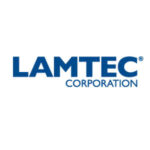
Lamtec Corporation
Lamtec Corporation is a global supplier of insulation vapor retarders and facings to the leading manufacturers, laminators and fabricators of fiberglass, rockwool, foam board and tape. Our focus is the building products market, specifically the Metal Building, Duct Wrap, Duct Board, Pipe, Foam Board / Panel, Tape and OEM insulation segments.
ENGINEERED FOR EXCELLENCE
Lamtec’s insulation vapor retarders and facings are engineered to protect insulation from physical abuse and the damaging effects of moisture. In addition, our facings are designed with proprietary flame retardant chemistry to assist you in meeting demanding fire codes and standards.
Our technical resources are available to leverage their decades of insulation industry experience to assist you in solving your product and process challenges.
For over 40 years, our philosophy has been simple, “Design and manufacture the very best in laminated insulation facing / vapor retarders, offer them at competitive pricing, deliver them on time and follow-up with comprehensive technical support”.
Lamtec’s 260,000 square foot facility is situated on a 45 acre site in Northeastern Pennsylvania, convenient to all New York metropolitan area ports and major North-South and East-West interstate highways.
Service Benefits
Management
- Profitability Boost
- Cost Reduction
- Operational Efficiency
- Market Access
- Market Differentiation
- Brand Value
- Investor Confidence
- Reliable Supply
- Risk Mitigation
- Resilience
Production
- Waste Minimization
- Energy Efficiency
- Carbon (GHG) Reduction
- Resource Optimization
- Pollution Control
- Hazard Reduction
- Innovation Boost
- Improved Quality
- Supply Chain Efficiency
- Regulatory Compliance
Human Resources
- Recruitment Advantage
- Talant Retention
- Job Satisfaction
- Leadership Growth
- Organizational Alignment
- Employee Engagement
- Health Safety
- Ethical Culture
- Skills Development
- Workplace Moral
Bronze Service
![]() Monthly cost: USD $1,500.00
Monthly cost: USD $1,500.00
Time limit: 5 hours per month
Contract period: 12 months
Bronze service includes:
01. Email support
02. Telephone support
03. Questions & answers
04. Professional advice
05. Communication management

SERVICE DESCRIPTION
The Bronze Client Service (BCS) for Sustainability Growth provides clients with an entry level option and enables client contacts to become personally acquainted with Mr. Dunn over a sustainable period of time. We suggest that clients allocate up to a maximum of 5 Key Employees for this service. Your Key Employees can then contact the consultant via email, whenever they feel that they need specific advice or support in relation to the consultant’s specialist subject. The consultant will also be proactive about opening and maintaining communications with your Key Employees. Your Key Employees can list and number any questions that they would like to ask and they will then receive specific answers to each and every query that they may have. Your Key Employees can then retain these communications on file for future reference. General support inquiries will usually receive replies within 48 hours, but please allow a period of up to 10 business days during busy periods. The Bronze Client Service (BCS) enables your Key Employees to get to know their designated Appleton Greene consultant and to benefit from the consultant’s specialist skills, knowledge and experience.
Silver Service
 Monthly cost: USD $3,000.00
Monthly cost: USD $3,000.00
Time limit: 10 hours per month
Contract period: 12 months
Bronze service plus
01. Research analysis
02. Management analysis
03. Performance analysis
04. Business process analysis
05. Training analysis

SERVICE DESCRIPTION
The Silver Client Service (SCS) for Sustainability Growth provides more time for research and development. If you require Mr. Dunn to undertake research on your behalf, or on behalf of your Key Employees, then this would understandably require more time and the Silver Client Service (SCS) accommodates this. For example, you may want your consultant to undertake some research into your management, performance, business, or training processes, with a view towards providing an independent analysis and recommendations for improvement. If any research and development, or business analysis is required, then the Silver Client Service (SCS) is for you.
Gold Service
 Monthly cost: USD $4,500.00
Monthly cost: USD $4,500.00
Time limit: 15 hours per month
Contract period: 12 months
Bronze/Silver service plus
01. Management interviews
02. Evaluation and assessment
03. Performance improvement
04. Business process improvement
05. Management training

SERVICE DESCRIPTION
The Gold Client Service (GCS) for Sustainability Growth is intended for more detailed evaluation and assessment, that may require your Key Employees to have monthly meetings or interviews with Mr. Dunn These meetings and interviews can be conducted over the telephone, Skype, or by video conference if required. The consultant can also attend your business premises, an Appleton Greene office, or another mutually beneficial location, but please note that clients are responsible for the costs of any disbursements separately, including travel and accommodation. This service enables you to integrate the specific skills, knowledge and experience of your designated consultant into your Key Employee management team. The Gold Client Service (GCS) can also incorporate training workshops, business presentations and external meetings with customers, suppliers, associations, or any other business-related stakeholders.
Platinum Service
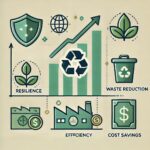 Monthly cost: USD $6,000.00
Monthly cost: USD $6,000.00
Time limit: 20 hours per month
Contract period: 12 months
Bronze/Silver/Gold service plus
01. Project planning
02. Project development
03. Project implementation
04. Project management
05. Project review

SERVICE DESCRIPTION
The Platinum Client Service (PCS) for Sustainability Growth is our flagship service and will be required if you need Mr. Dunn to facilitate the planning, development, implementation, management, or review of a particular project relating to his specialist subject, which would obviously require more time and dedication. This service enables you to reserve up to 12.5% of the consultant’s working month and provides a more hands-on service as and when required. If you need more time than this, then this can always be arranged, subject of course to the consultant’s ongoing availability. The benefit of having an external consultant involved in projects is they provide an independent perspective and are not influenced by internal politics, day-to-day responsibilities, or personal career interest. They provide objectivity, specific knowledge, skills and experience and will be entirely focused upon the tasks at hand. The Platinum Client Service (PCS) will provide your organization with a valuable resource as and when you need it.














